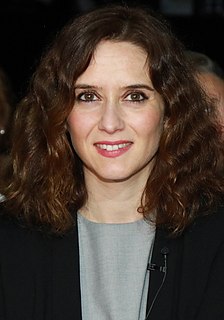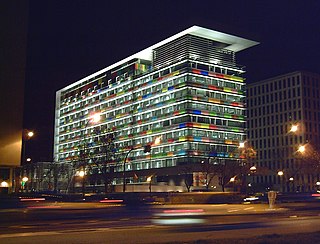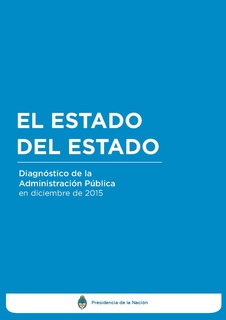
Infanta Cristina of Spain is the younger daughter of King Juan Carlos I and Queen Sofía. As of 2015 she is sixth in the line of succession to the Spanish throne, after her brother King Felipe VI's children, her sister Elena, and Elena's children.

Felipe VI or Philip VI is King of Spain. He ascended the throne on 19 June 2014 upon the abdication of his father, King Juan Carlos I. His mother is Queen Sofía, and he has two older sisters, Infanta Elena, Duchess of Lugo, and Infanta Cristina. In 2004, Felipe married TV news journalist Letizia Ortiz with whom he has two daughters, Leonor and Sofía.

The State of Mexico is one of the 32 federal entities of Mexico. It is the most populous, as well as the most densely populated state. It is divided into 125 municipalities and its capital city is Toluca de Lerdo.

The President of the Community of Madrid is the highest-ranking officer of the Autonomous Community of Madrid and the head of the Executive Branch. The office is currently held by Isabel Díaz Ayuso of the People's Party.

The Mayor of Madrid presides over the Madrid City Council, the government body of the capital city of Spain. The mayor has the duty of boosting the local policies, it directs the action of the other executive bodies, leads the Local Executive Administration and is accountable to the Plenary for its political management.

The National Statistics Institute is the official agency in Spain that collects statistics about demography, economy, and Spanish society. It is an autonomous organization in Spain responsible for overall coordination of statistical services of the General State Administration in monitoring, control and supervision of technical procedures. Every 10 years, this organisation conducts a national census. The last census took place in 2011.

The Boletín Oficial del Estado (BOE) is the official gazette of the Kingdom of Spain and is published every day except Sunday.

The Regional Government of Andalusia is the government of the Autonomous Community of Andalusia. It consists of the Parliament, the President of the Regional Government and the Government Council. The 2011 budget was 31.7 billion euros. It employs about 500,000 workers.

Adolfo Suárez formed the Suárez II Government on 5 July 1977 after being confirmed as Prime Minister of Spain by King Juan Carlos I on 17 June as a result of the Union of the Democratic Centre (UCD)'s victory at the 1977 general election. Suárez's second cabinet was composed mainly by members of the UCD and a number of independents. It succeeded the first Suárez government and was the Government of Spain from 5 July 1977 to 6 April 1979, a total of 640 days, or 1 year, 9 months and 1 day.
Most Mexican states do not have an official flag. For these states, a de facto flag is used for civil and state purposes, the flags have a 4:7 proportion ratio and typically consist of a white background charged with the state's coat of arms.

The Order of Civil Merit was established by King Alfonso XIII of Spain in 1926. The order recognizes "the civic virtue of officers in the service of the Nation, as well as extraordinary service by Spanish and foreign citizens for the benefit of Spain."

Banco del Estado de Chile, commercially operating under the brand BancoEstado, is the only Public Bank in Chile and was created by government decree in 1953. It provides financial services to consumers and companies, with a focus on national coverage in terms of geography and social sectors and a particular emphasis on the unbanked and small and medium enterprises, although it serves all types of businesses. It is the country's largest mortgage lender and largest issuer of debit cards. In addition, BancoEstado performs part of the Chilean government's financial activities through the accounts managed by the General Treasury of the Republic of Chile.

The Chief of the Defence Staff (JEMAD) is the highest-ranking military officer in the Spanish Armed Forces and is the principal military advisor to the Prime Minister, the Minister of Defence, the National Defence Council and the National Security Council. It's the fourth military authority of the country after the King, the Prime Minister and the Minister of Defence because the Secretary of State for Defence and the Under Secretary of Defence do not have military authority.

Pedro Sánchez Pérez-Castejón is a Spanish politician serving as Prime Minister of Spain since 2 June 2018. On 7 January 2020, Mr Pedro Sanchez was confirmed as the Prime Minister of Spain, with a lead of just two votes. The leader won approval from Parliament to lead the first coalition government since the restoration of democracy in the 1970s, ending the political deadlock that included two inconclusive elections. He has also been Secretary-General of the Spanish Socialist Workers' Party (PSOE) since June 2017, having previously held that office from 2014 to 2016.

The State of the State is a 2016 report released in Argentina, during the presidency of Mauricio Macri. It details the conditions of the state as of December 10, 2015, after the presidencies of Néstor Kirchner and Cristina Fernández de Kirchner. This report was announced on March 1, 2016, by president Macri, during the Opening of regular sessions of the National Congress of Argentina.

Pedro Sánchez formed the Sánchez I Government on 7 June 2018 as a result of the success of a motion of no confidence against Mariano Rajoy on 1 June. Sánchez was elected Prime Minister of Spain by the Congress of Deputies on 1 June and was sworn into office on 2 June. Sánchez's first government was composed mainly by members of the Spanish Socialist Workers' Party (PSOE) and its sister party, the Socialists' Party of Catalonia (PSC), as well as a number of independents. It succeeded the second Rajoy government and was the Government of Spain from 7 June 2018 to 13 January 2020, a total of 585 days, or 1 year, 7 months and 6 days.

José Luis Rodríguez Zapatero formed the Zapatero II Government on 14 April 2008 after being nominated by King Juan Carlos I to form a government for a second term in office as a result of the Spanish Socialist Workers' Party (PSOE)'s victory at the 2008 general election. Zapatero was elected Prime Minister of Spain by the Congress of Deputies on 11 April and was sworn into office on 12 April. Zapatero's second cabinet was composed mainly by members of the PSOE and its sister party, the Socialists' Party of Catalonia (PSC), as well as a number of independents. It succeeded the first Zapatero government and was the Government of Spain from 14 April 2008 to 22 December 2011, a total of 1,347 days, or 3 years, 8 months and 8 days.

Mariano Rajoy formed the Rajoy I Government on 22 December 2011 after being nominated by King Juan Carlos I to form a government as a result of the People's Party (PP)'s victory at the 2011 general election. Rajoy was elected Prime Minister of Spain by the Congress of Deputies on 20 December and was sworn into office on 21 December. Rajoy's first cabinet was composed mainly by members of the PP, as well as a number of independents. It succeeded the second Zapatero government and was the Government of Spain from 22 December 2011 to 4 November 2016, a total of 1,779 days, or 4 years, 10 months and 13 days.

Mariano Rajoy formed the Rajoy II Government on 4 November 2016 after being nominated by King Felipe VI to form a government for a second term in office as a result of the People's Party (PP)'s victory at the 2016 general election. Rajoy was elected Prime Minister of Spain by the Congress of Deputies on 29 October and was sworn into office on 31 October. Rajoy's second government was composed mainly by members of the PP, as well as a number of independents. It succeeded the first Rajoy government and was the Government of Spain from 4 November 2016 to 7 June 2018, a total of 580 days, or 1 year, 7 months and 3 days.


















